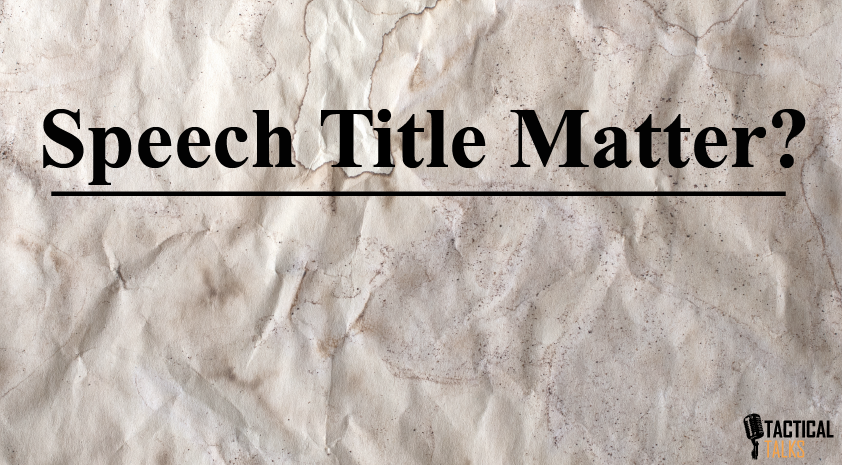When I entered the Toastmasters International Speech Contest back in early 2015, I ran into a bit of a problem with my speech title.
Here’s why:
The title, Louder Isn’t Always Better, which isn’t terrible, didn’t do much for my speech besides exist.
With the division contest just 2 days away, I practiced my speech at another Toastmasters club in hopes of some last minute feedback.
Luckily for me, the winner of the previous year’s district contest was sitting in the audience. Who better to dish out advice than that?
Afterwards she graciously offered her feedback. She understood that there wasn’t enough time to make any Grand Canyon sized changes, but what she did suggest was gold.
She quickly pointed out a problem: I didn’t have what Craig Valentine, 1999 World Champion of Public Speaking, calls a “Foundational Phrase.” Basically, it's a single sentence that sums up your entire message. And for it to be effective, you want to repeat it at least 2-3 times throughout your speech.
I had no such phrase.
Something I did have in my speech, though, was a quote from Dale Carnegie, and it was about to get a promotion. The quote:
“If you want to gather honey, don’t kick over the beehive.”
Or in modern terms—don’t be a jerk to the person whose help you seek.
The good news is that the Carnegie quote summed up my speech’s message perfectly.
So she told me “This would be an awesome title!” Not the whole thing, anyway. And with that, the new title became Don’t Kick The Beehive.
From Louder Isn’t Always Better to Don’t Kick The Beehive. What this title swap did was give my speech a Foundational Phrase. Well, not quite. Her second suggestion turned out to be the final piece. She suggested that I change my closing line to incorporate it as well. I listened.
Now I had the title, the actual quote and finally, the closing line. Just barely met the arbitrary requirement to be considered a Foundational Phrase! Woo hoo!
The result?
I won the division contest, and I believe those changes played an important role. A few hours later, when the contest photos were posted up on Facebook, the commenter added “Kick that beehive!” Dang straight.
Just goes to show, a good title can do GREAT things.
3 Reasons Why Your TITLE Is Important:
1. It can stimulate interest and curiosity
Creating a title is a tricky task and there’s no perfect science. Rules are a drag. Ask a cheater about rules and you might get a response like, “If I didn’t break the rules, I never would’ve won!” Touché you cheatin’ bastard.
Okay, here are some things to think about:
You want to create interest and curiosity but at the same time you don't want to reveal too much. However, there’s another problem with being too “clever.” What if people are scanning through the day’s presentations and they scroll down to yours. Let’s say the title of your speech is this: Struggles or Snuggles?
Cool. Seems clever. Maybe a little silly. But WTF does it mean? If you stumbled across that, you might give a mental thumbs up for the fabulous rhyming, but are you going to risk an hour of your time on “cute”? I wouldn’t.
So, where does that leave us?
Is there a way to be as direct as possible about what your speech is going to be about, and still incite curiosity?
The answer is YES. What about something like this: How To Overcome The Fear Of Public Speaking With A Baseball Bat
Assuming it were relevant to the speech, it would be a pretty interesting title.
Then, depending on the topic or point of your speech, it can be funny as well. Since your overall purpose would likely be entertainment, it certainly makes sense.
Here are some general rules of things to AVOID when coming up with your title:
- Clichés
- Boring
- Shock value or being overtly offensive (**Note: This depends on the audience. If you’re speaking at an adult entertainment expo and your title has some some porny words in it, you’re likely good to go)
Here’s an exercise you can do to sharpen your title making skills.
Go to www.buzzfeed.com/ and look through all of the articles there. Don’t ask why. When you see some of the headlines, you’ll understand. Take inventory of words that produce a “shock” or an emotional knee-jerk reaction when you read them. Consider those words for your next title.
There’s a lot that goes into a title. Just try and make it interesting, funny, clever, specific, benefit-driven, memorable, holy crap this is exhausting...you get the idea.
2. It can double as a Foundational Phrase
Make your title the Foundational Phrase. Remember this? It's something you repeat throughout your speech that basically sums up your entire message in a single sentence or two (watch this speech...see if you can spot it).
Whether it rhymes, flows well, or bold enough to torch it into the minds of your audience members, it’s meant to be memorable.
The idea is to repeat it enough so your audience remembers it. If they remember the Foundational Phrase, they’ll remember the message of your speech—that’s the hope, anyway.
Done right, it works well. Done wrong and it sounds like you think the audience is stupid by overtly repeating the same thing over and over again as if you were speaking to defiant children.
If you don’t have a Foundational Phrase, the title gives you an opportunity to give your speech one, which is exactly what I did for my contest speech. And of course, it's one more chance to hammer your message into the audience's thick skull.
Super Pro Master Tip
Write out as many titles as you possibly can. Take a break, come back and start writing more. Seeing the previous titles will create new connections in your mind and allow you to squeeze all the title juice out of your citrus-brain.
3. The title can help you discover clarity
Brainstorming does more than just churn out a badass title.
Similar to your Foundational Phrase, this causes you to Twitterize the point of your speech. This benefits you because it helps peel back the skin of confusion and mop away the ambiguity in your thoughts.
My pops always told me that “muddled thinking equals muddled writing speaking.”
This will help you get a full understanding of your speech’s topic, which will no doubt benefit your audience when it comes time to deliver.
Discover clarity AND get an awesome title. Sweet deal!
Close it up...
Does it have to do all of those things simultaneously to be an effective title? No. Can it? Absolutely.
The goal of this article is to get you to think about your title. It’s easy to just slap any old words to the head of your speech, but what use is that? By having a mediocre title, you’re telegraphing to the audience that your speech is going to be its identical twin.
If you believe that your message is important, prove it by putting some time and effort into it.
Share this post and be sure to give it a rad title!
About this guy...

Howdy! My name is Matt Kramer and I used to suffer excruciating death when speaking in front of a group, now I LOVE it. Overcoming this fear has changed my life and it can change yours, too. My focus is to help you overcome the fear of public speaking so you can build the confidence to go after what you want in life.

